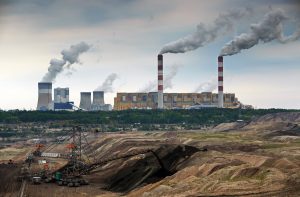EEOICPA Claims Assistance
 Exposure to toxic chemicals in the workplace is unacceptable, as your employer owes you the responsibility of keeping you safe, following the appropriate protocol, and giving you fair payment for your hard work and dedication. So when your employer exposes you to toxic materials that can severely damage your health and well-being, you are likely entitled to compensation for your losses.
Exposure to toxic chemicals in the workplace is unacceptable, as your employer owes you the responsibility of keeping you safe, following the appropriate protocol, and giving you fair payment for your hard work and dedication. So when your employer exposes you to toxic materials that can severely damage your health and well-being, you are likely entitled to compensation for your losses.
If you want to file a claim for your damages, you may qualify for payment through the Energy Employees Occupational Illness Compensation Program Act, also called the EEOICPA. This program is dedicated to supporting victims under certain employers, giving them greater flexibility to focus on recovery. But traversing the legal system can be difficult, so you may want to work with an EEOICPA lawyer at Stephens & Stephens, LLP during this challenging time. Check out the complete list of facilities covered by the energy employees occupational illness compensation program act (EEOICPA) and for more information, we encourage you to get in touch with our team.
Overview of the Energy Employees Occupational Illness Compensation Program Act (EEOICPA)
The EEOICPA was passed on October 30, 2000, effective July 31, 2001. The National Defense Authorization Act later amended it for Fiscal Year 2002 and the Ronald W. Reagan National Defense Authorization Act for Fiscal Year 2005.
Under Subtitle B of the EEOICPA, “covered employees” can receive compensation ($150,000 and medical benefits from the date a claim is filed) for working at a Department of Energy (DOE) facility or an atomics weapon employer (AWE) facility. Compensation amounts are provided by an entitlement fund in the United States Treasury, which is replenished as necessary. The funding may be limited or removed only by an act of Congress.
In cases of covered employees who are deceased at the time of payment of compensation, payments are made first to the spouse, then (if no spouse) in equal shares to living children, then (if no spouse and no children) in equal shares to living parents, then (if no spouse, children, or parents) in equal shares to living grandchildren, then (if no spouse, children, parents, or grandchildren) in equal shares to living grandparents.
If an eligible covered employee dies before filing a claim, a survivor entitled to payment may file the claim. Such survivors may also file claims on behalf of eligible individuals who have died before filing an EEOICPA claim. The eligible survivor must be alive to receive the payment.
What Is the EEOICPA?
The EEOICPA was passed in 2001 to help those suffering from certain illnesses, including certain types of cancer, caused by exposure to radiation through their jobs. Those working in nuclear testing, nuclear energy, and atomic weapons manufacturing may have been exposed to dangerous levels of nuclear radiation that impacted their health.
Because radiation exposure is so hazardous, the United States government signed this act into law to offer compensation for impacted workers. Before this act, many workers had difficulties filing workers’ compensation claims for these conditions, which left them without the financial support they and their families needed when dealing with the aftermath of these dangerous conditions.
Getting compensated through the EEOICPA can be difficult, too, but we can help. Here’s what you can expect.
Who Is Covered by the EEOICPA?
EEOICPA coverage may differ, depending on whether you’re eligible under Part B or Part E of the EEOICPA. If you’re unsure where your claim falls, your lawyer can help you determine your next steps.
Part B covers workers employed by the Department of Energy (DOE), atomic weapons employers (AWE), or contractors working for the DOE. This compensation is offered for those working at a covered facility, offering up to $150,000 for eligible workers, as well as medical bill coverage. If the worker is deceased, their spouse, children, grandchildren, or parents may be eligible for these EEOICPA benefits.
Part E only covers those working for a DOE facility. These benefits differ because they also offer workers’ compensation, such as wage repayment for those too ill to work. You may also be eligible for an impairment award under Part E of the EEOICPA.
Unsure whether you’re qualified for one or both? Your EEOICPA lawyer can help you determine what compensation you’re eligible for, and they can help you seek the financial recovery you’re due.
EEOICPA Part E Claims
Former Subtitle D of the Act, managed by DOE, assisted nuclear workers in obtaining state workers’ compensation benefits due to work-related toxic substance illnesses.
The program under Subtitle D was replaced in October 2004 by a new program under Subtitle E, managed by the DOL, which provides compensation (and medical benefits under certain circumstances) to covered employees (or their surviving spouses and their surviving children who, at the time of the worker’s death, were under the age of 18, or full-time students under the age of 23, or of any age and incapable of self-support), for illnesses caused by exposure to any toxic substance while working at a DOE facility.
Compensation is based on the amount of disability ($2,500 for each percentage point of impairment; e.g., $25,000 for 10% disability) and loss of income before your expected Social Security retirement age ($10,000 for each year of 25%-50% wage loss, and $15,000 for each year of wage loss greater than 50%, plus an additional 45% if you suffered a 75% wage loss for three years).
If you have not previously filed for benefits under the former Subtitle D, you will need to apply for benefits under the new Subtitle E.
Some individuals who have received payments under EEOICPA Subtitle B or RECA might be eligible for other federal payments if they qualified under EEOICPA Subtitle E.
EEOICPA Claim Process: What to Expect
The claim process can be convoluted, but we have extensive experience in this area. Trust our team to guide you through the EEOICPA claim process. Here’s what you can expect.
1. DOL Referral to NIOSH
For claims other than SEC claims, when a claim is filed under EEOICPA, the Department of Labor makes an initial determination as to whether the claimant worked at a covered facility during a covered period and has a qualifying health condition.
Suppose the health condition at issue is cancer. In that case, the case is sent to the National Institute for Occupational Safety and Health (NIOSH) for “dose reconstruction,” estimating a worker’s past exposure to radiation based on exposure monitoring and other information.
NIOSH then sends an acknowledgment letter to the claimant, notifying them that NIOSH received the case from the DOL for dose reconstruction. While a case is pending with NIOSH for dose reconstruction, claimants are given a NIOSH tracking number, which allows them to obtain their current case status online. NIOSH tracking numbers are assigned in the order the case is received from the DOL. NIOSH currently completes 300-400 dose reconstructions per month.
2. NIOSH Dose Reconstruction Process
NIOSH uses personal exposure information (film badge readings, x-rays, urinalysis results, incident reports, etc.) whenever possible. If little or no personal exposure information is available, NIOSH will use technical documents (site profiles, etc.) and coworker data to provide reasonable dose estimates to fill in the gaps. Once the NIOSH contractor has received enough information to conduct the dose reconstruction, NIOSH selects a health physicist to work on the particular case.
Questionnaires are sent to claimants, and answers are submitted via telephone interviews. The telephone interviews are conducted to offer claimants/survivors an opportunity (optional/voluntary) to provide additional information not described in the radiation exposure information. A written telephone interview summary report is sent to the claimant following the interview to provide an opportunity for review and to submit corrections/additional information (also via telephone).
Following the telephone interview, NIOSH performs an analysis and prepares a report of ranges of estimates, including worst-case figures.
The draft dose reconstruction report is sent to the claimant for review. Within two weeks of receipt of the draft report, NIOSH conducts an optional closing interview with the claimant to review the results and the basis for their calculation and to address any remaining questions/concerns.
If NIOSH revises the draft report, the claimant will receive a revised copy, and a new closing interview will be scheduled. Otherwise, if a claimant disagrees with the NIOSH draft dose reconstruction report, they may state such disagreement only later upon receipt of the DOL’s recommended decision in the case.
The claimant is required to sign and return an OCAS-1 form (OCAS is the NIOSH Office of Compensation Analysis and Support) within sixty days from the date of receipt of the draft dose reconstruction report, stating that they have no information to add and authorizing NIOSH to forward the complete report to the DOL for a decision.
NIOSH will send the claimant a copy of the final dose reconstruction report upon receipt of a signed OCAS-1 form. If NIOSH does not receive the OCAS-1 form, NIOSH will administratively close the case and refuse to forward it to the DOL. The case may be reopened once the signed OCAS-1 form is submitted.
In the case of multiple claimants, partial compensation will only be awarded to those individuals who return a signed OCAS-1 form.
The Advisory Board on Radiation and Worker Health (scientific, medical, and worker perspectives) reviews dose reconstructions for scientific validity and accuracy.
3. DOL Determination Regarding Probability of Causation
Once NIOSH completes the dose reconstruction, the case is returned to the DOL. The Department of Labor reviews the dose reconstruction report, as well as medical, employment, and other information from the employee/survivor.
The DOL then decides as to the probability of causation, expressed as a percentage (0% – 100%) – the likelihood that the cancer was “at least as likely as not” due to the employee’s occupational exposure to ionizing radiation during employment at a covered facility during a covered period (i.e., periods in which nuclear weapons-related production occurred).
Also, facilities having significant contamination may have quantities of residual radioactive material that “could have caused or substantially contributed to the cancer of a covered employee.” A percentage value greater than or equal to 50% at the upper 99th percentile credibility limit constitutes a finding that it is “at least as likely as not” that the radiation dose caused the employee’s cancer.
The DOL will recommend compensation for cases where the probability of causation is 50% or greater but not for cases where the possibility of causation is less than 50%.
The DOL may determine that the cancer was caused not by occupational radiation exposure but by environment, lifestyle, or genetics based on identified behaviors, characteristics, and activities (risk factors). The DOL uses a computer program developed by NIOSH, known as NIOSH-IREP, to calculate the probability of causation.
The main determinants of “probability of causation” are cancer risk models (mathematical models based upon the dose-response relationship determined for a given cancer type, taking into account the cancer type, year of birth, year of cancer diagnosis, years of exposure, radiation type, and dose, but not taking into account any other occupational, environmental, or dietary carcinogens, except for smoking for lung cancer and ethnicity for skin cancer) and radiation dose levels (i.e., the amount of radiation dose to which an employee was exposed, based on estimation methods that favor of the claimant).
The DOL uses the dose reconstruction results developed by NIOSH, as well as the employee’s personal characteristics, employment, and medical information.
Benefits Offered Through the EEOICPA
But what does the EEOICPA offer to suffering workers? This act can help workers like you get compensated so they don’t have to worry about the costs of their condition.
For example, you may be eligible for medical coverage. If your claim is approved, you may receive funds for your medical care. That way, you don’t have to pay out of pocket for your care. You may also receive a lump sum payment. Its size will depend on what you’re qualified for. Your lawyer can explain the details of what you’re due based on your case.
You may also be due compensation for wage loss under Part E of the EEOICPA. You may even receive funds while still working if you’re given an impairment rating. Talk to your EEOICPA lawyer about your current ability and work status before you file.
Do you need EEOICPA claims assistance?
Are you eligible for compensation? If you or a family member worked at a facility that manufactured, tested, or processed uranium or other radioactive materials used in atomic weapons and became ill, you may be entitled to compensation of up to $150K plus medical benefits.
- In 2000, the Energy Employees Occupational Illness Compensation Program Act (EEOICPA) was passed by Congress to provide compensation and medical benefits to eligible workers who worked in atomic weapons programs. Certain survivors of these employees are also eligible for benefits.
- This is not a lawsuit but a particular type of federal workers’ compensation provided by the government through the Department of Labor.
- There is no filing deadline, but the legislation is re-authorized annually and is vulnerable to budget cuts.
- Counsel fees are regulated by statute, and the costs associated with an initial claim are limited to 2% of the lump sum compensation received by the worker or surviving family member. No counsel fees are payable except out of the compensation paid to the claimant by the Department of Labor.
For EEOICPA claims assistance, contact our counsel at 716-208-3525 or fill out our free claim evaluation. We can still offer help if you’ve already filed, even if your claim was denied!
What if I’m Denied?
You may have already filed an EEOICPA claim, only to be told you don’t qualify for benefits under the act. That can be disheartening, especially when you’re facing a devastating cancer diagnosis or when you’ve lost a loved one to a radiation-related illness.
But you have three chances to file. Your EEOICPA lawyer can help you re-submit your claim with the evidence you need, including clearer exam results and other necessary information. If you’re worried about getting your benefits, your lawyer can represent you during this difficult time.
Need Help With Your EEOICPA Case? Get Valuable Assistance From the EEOICPA Attorneys at Stephens & Stephens, LLP
If you’ve been exposed to radiation or other toxic materials, you may have seen significant damage to your overall health. But that doesn’t mean you don’t have options. You may be eligible for compensation.
Getting compensated under the EEOICPA isn’t always easy, but a lawyer from Stephens & Stephens, LLP can help. If you’re struggling to get compensated for your suffering and dangerous health conditions, reach out for a free consultation. We can be reached when you call 716-208-3525 or fill out the contact form on our website.

















